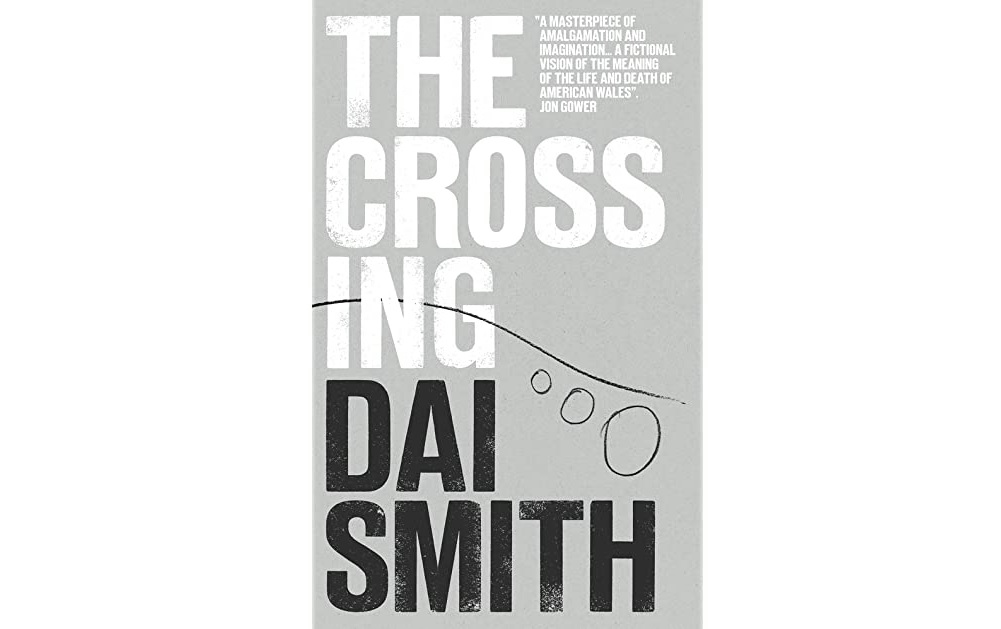Review: The Crossing’s rich tapestry is an attempt to write the great South Walian novel

Sarah Tanburn
David Alfred Thomas, known as DA, became that colossus of imperial coal, Viscount Rhondda. He started with money, for sure, but became wealthy beyond dreams. His story is inextricably bound up with the drama of South Wales and the black gold powering Britain’s nineteenth century expansion.
In ‘The Crossing’, Dai Smith aims high: to write the great South Walian novel though an unconventional, tangential biography in which DA is central but rarely speaks. Rather, we have two bracketing voices, two imaginary men in pages peopled by historic figures. Jo Gormley and Arthur Scargill, Margaret Lady Rhondda and more. Not forgetting the grande dame herself, RMS Lusitania, sunk by German U-Boats off Ireland in 1815. DA and his entourage were on board.
One of our narrators is the assistant to Arnold Rhys-Evans who was DA’s secretary. Tal Lloyd crosses the Atlantic on Lusitania and is aboard her when she goes down. When DA casts him aside, he becomes a university administrator; after a life committed to good filing, he sorts out his papers and watches his memories dance behind his eyelids as he excoriates and praises lost loves.
Billy Maddox is the other voice telling us his story. He is a jaded but celebrated photographer, son of a fiery teacher who espouses the most traditional, oldest Labour now imaginable. He’s dead, the old man, but his voice is strident in Billy’s head, dismissive of all attempts to rebuild the might of the Valleys.
The novel might equally be called ‘Descent’. Both Billy and Tal , unaware of each other’s existence, are uncertain progenitors. Late in life both must ask whether they might have been fathers all along. If Tal’s belated news is true then Billy is his grandson. If Billy’s hopes are dashed, his (possible) daughter is actually his half-sister. Women’s words on such matters cannot be trusted.
Fire
Smith creates a wall-sized panorama of the towns and streets, the rivers and bridges of Merthyr, Aberdare and Pontypridd, and the brawling explosiveness created by coal. And yet, of course, all that is changed by the end of that era: In Smith’s words: ‘the dynamics of action had been replaced by the melancholia of that loss.’ His characters, historical or not, are enmeshed in the financial, ethical and political conundra of what comes next, how to reverse the long decline.
So often, in the business of regeneration, we struggle to find the right interventions, the ones which will create lasting change, whether through education, employment, infrastructure or anything else. Smith does not resist the deep dive into allegations of sticky fingers, but he asks the fundamental question too: what, if anything, can bring back the passion and might of the glory days?
In asking, he is not simply sentimental (although he is that too). He argues powerfully for DA’s position that Wales should be central in the world, an unquestioned titan not only known for strange accents and an affinity for dragons. He wants the world to know that Wales breathes real fire. Yet, in the end, he seems to say that the answers can and must be local, specific and private. The grand public gesture, the sweep of ambition demonstrated by DA, will not work again. Not here, not now.
Mythology
For this scope and challenge, The Crossing is an engrossing read filled with interesting people. I am no historian, but I would have liked Lady Rhondda to be less of a mealy-mouthed postmistress and more that strident campaigner we know her to have been. Her own personal life was deeply unconventional: I suspect she might have been more forgiving of her father’s peccadillos than the prim Edwardian Margaret of Smith’s imagining.
Too often, historical novelists condescend and over-explain. The trap is particularly common amongst those writing of times within living memory, events readers themselves will remember and people they will have known. Smith avoids such over-simplification, offering sideways glances into famous moments and vivid encounters. The inner strains of the labour movement in the 1970s and 1980s are shown at a tense London funeral rather than explicated head-on. Elbert Hubbard’s flamboyant philosophy leverages DA’s ultra-capitalism in an extended counterpoint. These are times and arguments well-rehearsed and indeed mythologised in our shared national narrative.
Smith’s voice comes through the story, his muscular prose clear in Billy’s cynicism, the exhaustion of Tal dying in a nursing home, or the younger Tal as he discovers desire. Smith kneads and stretches the language, both English and the scattered Cymraeg which sparkles like fugitive gold. He gives us vivid pen portraits of houses, bridges, pubs and boxing rings, the first class decks of the Lusitania and the winding roads up the Valleys.
The one place we scarcely see is down a mine: the coal itself is a ghost, its powerful roar recorded secondhand and recalled in later days, much as DA himself. The engine of the future needs the visionary leader, but that is almost the easy part. That Cymru, the central, imperial Wales, also relied on the strong backs and hungry curiosity of miners and, most of all, the ferocious power of the coal itself, the energy now burnt off into our air and seas.
The Crossing demands we ask ourselves those urgent questions about the future even as we wonder who sired whom and who will come off worst in the next violent encounter. The reader needs to put in the time to follow these threads but the resulting tapestry rewards in its rich detail and new insights.
The Crossing is published by Parthian Books 2020 costs £9.99 and can be bought here.
Support our Nation today
For the price of a cup of coffee a month you can help us create an independent, not-for-profit, national news service for the people of Wales, by the people of Wales.






